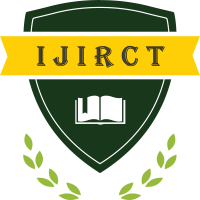Published In
Publication Number
Page Numbers
Paper Details
Leveraging Azure Well-Architected Framework for Enterprise Cloud Governance
Authors
Parag Bhardwaj
Abstract
Leveraging the Azure Well-Architected Framework (WAF) for enterprise cloud governance provides organizations with a comprehensive set of best practices and tools to optimize cloud operations while ensuring security, compliance, and cost efficiency. The WAF is structured around five key pillars—cost optimization, security, reliability, performance efficiency, and operational excellence—which collectively guide enterprises in building and managing cloud architectures that align with business objectives and governance requirements. This framework offers a proven methodology for managing cloud resources at scale, ensuring high availability, reducing risks, and preventing overspending. For enterprises, adopting the WAF helps streamline governance by enabling consistent policy enforcement, automated resource management, and continuous monitoring. The integration of Azure Policy, Azure Blueprints, and tools like Azure Cost Management and Azure Security Center ensures that cloud environments are governed in a way that maximizes value while adhering to regulatory standards and minimizing vulnerabilities. Furthermore, the framework supports the migration to and operation of multi-cloud and hybrid environments, providing a cohesive governance strategy across complex cloud landscapes. By implementing Azure’s Well-Architected Framework, organizations can address key challenges in cloud governance—such as ensuring compliance, optimizing costs, managing performance, and securing data—while maintaining operational flexibility and agility. This research explores how leveraging the WAF can enable enterprises to create a resilient, cost-effective, and secure cloud environment, providing a foundation for both innovation and compliance in today’s dynamic digital landscape.
Keywords
-
Citation
Leveraging Azure Well-Architected Framework for Enterprise Cloud Governance. Parag Bhardwaj. 2022. IJIRCT, Volume 8, Issue 6. Pages 1-12. https://www.ijirct.org/viewPaper.php?paperId=2501006
